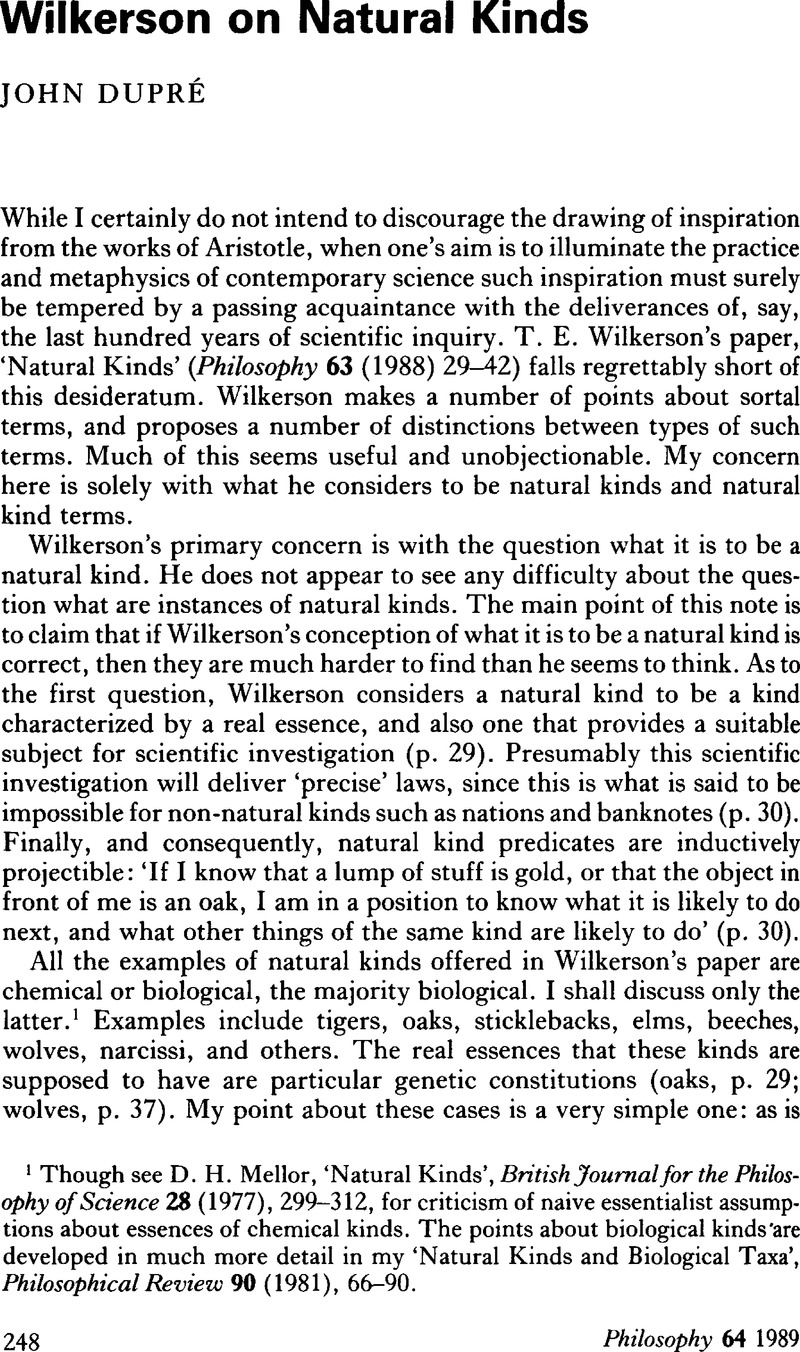Article contents
Wilkerson on Natural Kinds
Published online by Cambridge University Press: 30 January 2009
Abstract

- Type
- Discussion
- Information
- Copyright
- Copyright © The Royal Institute of Philosophy 1989
References
1 Though see Mellor, D. H., ‘Natural Kinds’, British Journal for the Philosophy of Science 28 (1977), 299–312CrossRefGoogle Scholar, for criticism of naive essentialist assumptions about essences of chemical kinds. The points about biological kinds are developed in much more detail in my ‘Natural Kinds and Biological Taxa’, Philosophical Review 90 (1981), 66–90.Google Scholar
2 Mayr, Ernst writes: ‘The concepts of unchanging essences and of complete discontinuities between every eidos (type) … make genuine evolutionary thinking well-nigh impossible’ (Populations, Species, and Evolution (Harvard University Press, 1970), 4)Google Scholar. For a more detailed and more philosophical treatment, see Hull, D. L., ‘The Effect of Essentialism on Taxonomy: 2000 Years of Stasis’, British Journal for Philosophy of Science 15 (1965), 314–326; 16 1–18.CrossRefGoogle Scholar
3 The issue is a little more complicated than I suggest, since some biologists do believe that divisions between higher taxa should represent phylogenetic matters of fact. This does nothing to encourage the view that such kinds might have essences, however.
4 See Corbet, G. B. and Hill, J. E., A World List of Mammal Species (London: British Museum (Natural History), 1986).Google Scholar
5 Various other similar examples can be found in my ‘Natural Kinds and Biological Taxa’ (op. cit.).
6 I have offered qualified support for a modest conception of natural kinds stripped of their essentialist connotations in ‘Sex, Gender, and Essence’, Midwest Studies in Philosophy 11 (1986), 441–457.Google Scholar
7 I have discussed and criticized this and other elements of a broader picture of which it is typically part in ‘Materialism, Physicalism, and Scientism’, Philosophical Topics (1988).Google Scholar
- 5
- Cited by


